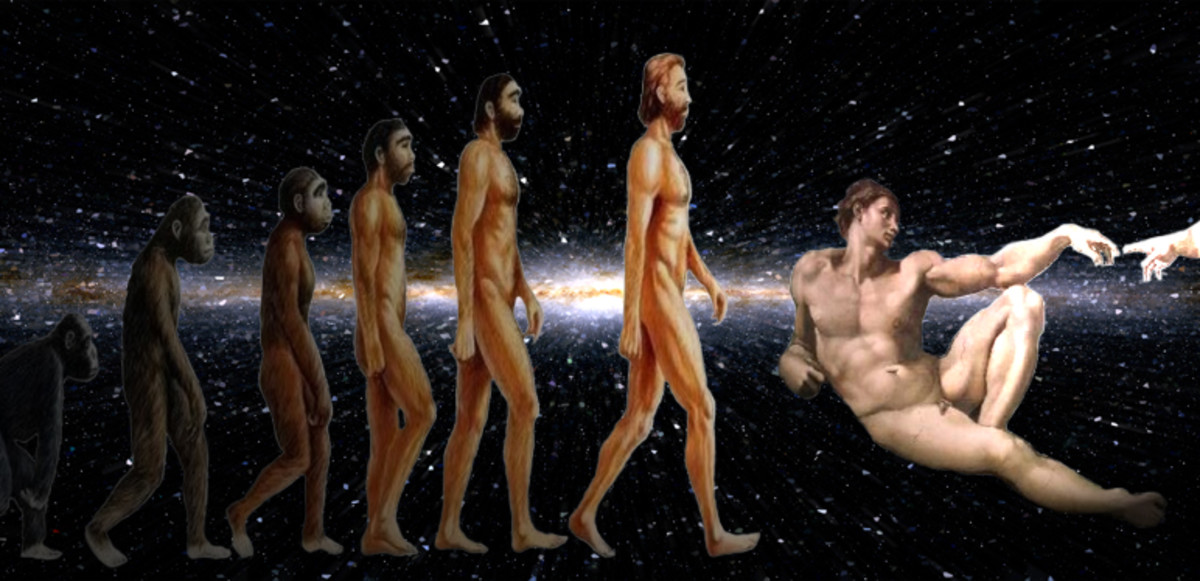Writing Lessons from the Gospel of John, Part 2
In the last hub, I explored how well John the gospel writer followed two principles from James J. Kilpatrick’s book, The Writer’s Art. In this hub, I’ll examine a couple more important “oughts” for any writer, and check to see if John thought about these principles as he prepared his gospel.

Principle #3 Know Where You're Going Before You Start
Kilpatrick says that most young writers start out conscientiously outlining their work -- that is, knowing how they want to start, figuring out how to build their arguments, determining how to structure each chapter, and ultimately deciding how to end their work.
And, as he contends, writers do well if they obey the old admonition (1) tell them what you’re going to say, (2) say it, and then (3) tell them what you have said.
John does no less. As I previously mentioned, within the first 12 verses, John tells the reader that if you receive Jesus Christ, you have the right to be called a child of God. By the very end of his gospel (chapter 20), he repeats what he’s already told you “But these are written that you may believe that Jesus is the Christ, the Son of God, and that by believing you may have life in his name.” In between, he clearly and systematically presents the evidence that Jesus Christ is the Son of God.
Twice, near the end, John makes the statement that Jesus “did many other miraculous signs in the presence of his disciples, which are not recorded in this book.” And he repeats the same statement in the very last verse of his book,(John 21:25) saying “If every one of them were written down, I suppose that even the whole world would not have room for the books that would be written.”
These repetitious statements from John are not meant as an apology – as if John were working on a deadline, and was limited to 11,000 words because that’s all that would fit in the column space, or because 11,000 words were what his editor expected.
No, John probably had so much to say that his words overflowed. When you have an indescribable love for the Savior as John did, you can’t stop talking about His wonderful compassion, mercy, and care. But John had a divine editor and a job to complete, and he couldn’t go off on a tangent before reaching his goal. God impressed on him which miracles to include (there were only eight, that John refers to as signs) and how long to make each chapter. And the book went for as long as the Lord wanted it to, and not a verse longer.
How humbling for a writer. But there’s something else to consider. As Philip Yancey says in his book Disappointment With God:
Every creator, from a child with Play-Doh to Michelangelo, learns that creation involves a kind of self-limiting. You produce something that did not exist before, yes, but only by ruling out other options along the way.
Yes, even God as the Creator is limited, and consequently does rule out “other options.” Don’t you wish you knew more stories about Jesus’ early life besides his teaching in the temple at age 12, or how he met his friends Mary, Martha, and Lazarus? Sorry. I believe God impressed on John to sacrifice these interesting details because their inclusion would not have advanced the story in the way that God wanted. Just think of them as the deleted scenes that ended up on God’s cutting room floor.
Principle # 4 Keep It Simple
Oh, how I wish this were an easy principle. But it’s not. It’s among the most difficult of tricks to pull off.
Kilpatrick says this:
If your aim is chiefly to be clear, keep this in mind: Short words ordinarily are better than long words. Short sentences are generally better than long sentences.
I’m as guilty of violating this principle as any other writer. I’m tempted at every turn to use an impressive word, a 50 cent word, when a 10 cent word would serve much better. If you’re in love with language, I know that you share my affliction, and it’s especially problematic when you’re writing in English, a language with a massive vocabulary.

But John knew the right way to do it. Just look at his magnificent prologue in Chapter 1.
To be brief, examine verses 1-5:
In the beginning was the Word, and the Word was with God, and the Word was God. He was with God in the beginning.
Through him all things were made; without him nothing was made that has been made. In him was life, and that life was the light of men. The light shines in the darkness, but the darkness has not understood it.
In this simple, but profound treatise on the Trinity, John uses one-syllable words about 90% of the time, and for the rest of the chapter, the proportion of short words continues at the level of about 85-90%.
Tell me, could you write something so awesome using one-syllable words and simple sentences? I doubt it. The vast majority of writers (including me) are not talented enough to write this way. If I tried writing in this style, it would read like this:
See Spot run. Run Spot, run. See the ball. See Spot roll the ball down the hill.
A Keyword? How Simple Can You Get?
Our experience here at HubPages teaches us all about keywords and tags. We’re told to use the right keywords to bring traffic and clicks and Google Adsense money into our accounts.
So think about John’s short keywords. The keyword believe is used over 90 times in his gospel. John also constantly uses the keywords life and light.
In Google Adsense terms, these keywords aren't worth much -- and they're not even keyword phrases. According to Google, the word believe is worth $0.58 per click; the word life is worth $3.22 per click; and the word light will bring you a whopping $1.78 per click. Such keywords are not exactly going to bring you big buckets of cash, are they?
I can assure you, though, if you understand and accept the context of these words from the Gospel of John (especially the believe part), you will have eternal riches from God the Father that surpass anything you could earn on HubPages.
Believe. Life. Light. Money words.
As the Apostle Paul said: And God raised us up with Christ and seated us with him in the heavenly realms in Christ Jesus, in order that in the coming ages he might show the incomparable riches of his grace, expressed in his kindness to us in Christ Jesus.
Next hub: Great writing in early chapters of John
Photo Credits
Wycliffe page from Wikimedia Commons
Sunrise photo from ccgd on Flickr
Resources
Yancey, Philip. Disappointment With God. Zondervan, 1997.
The Holy Bible, Gospel of John, New International Version








